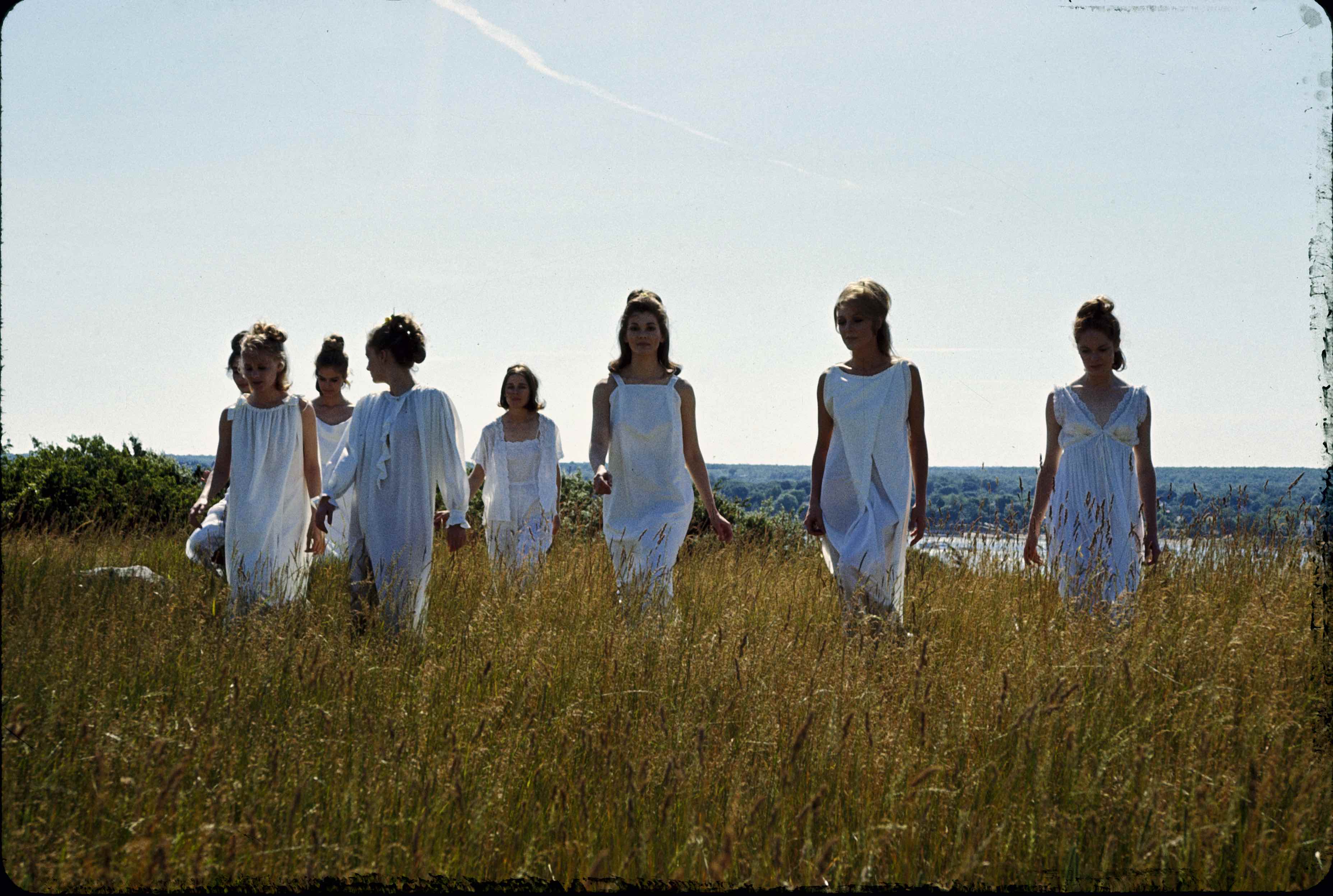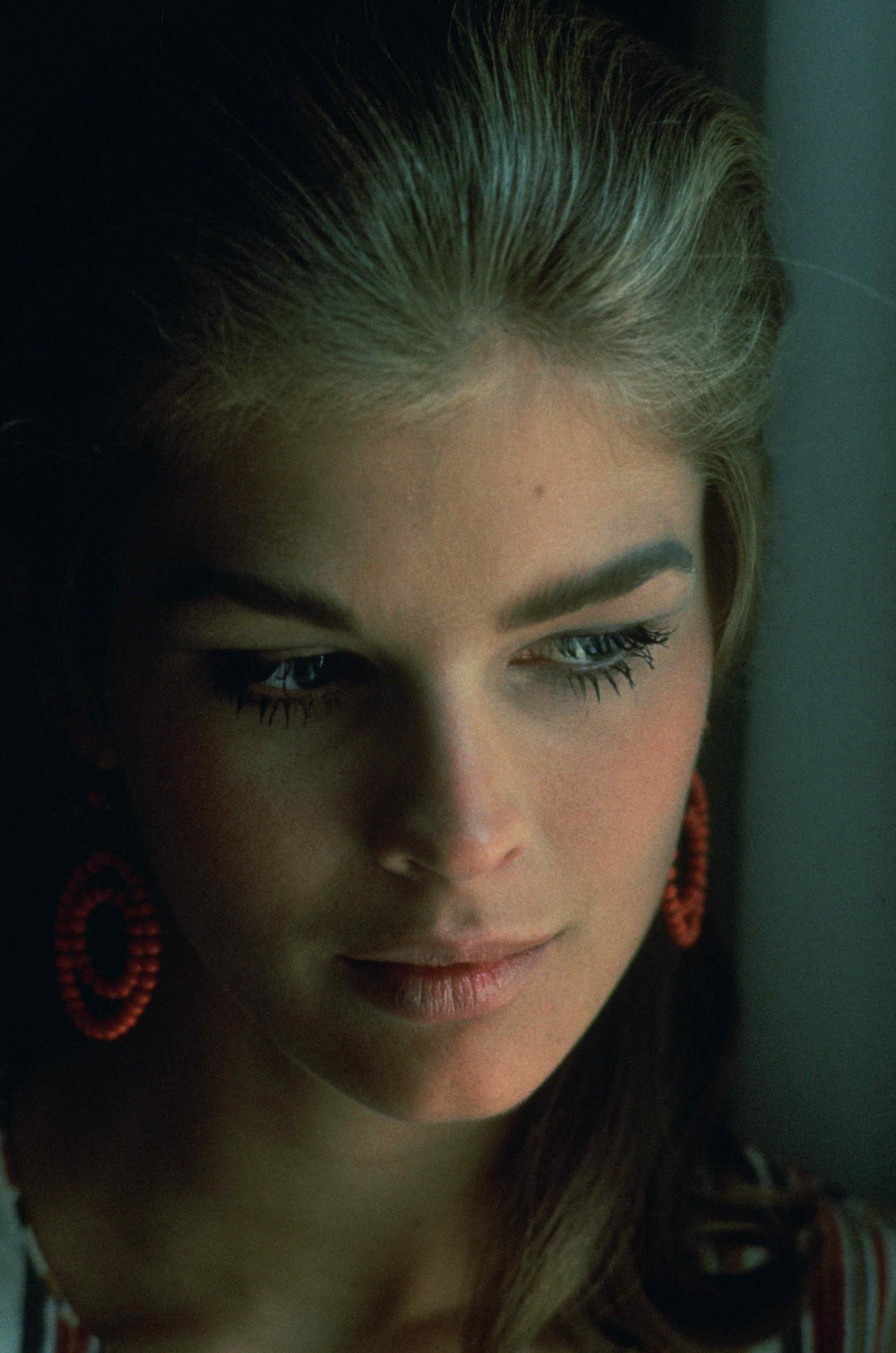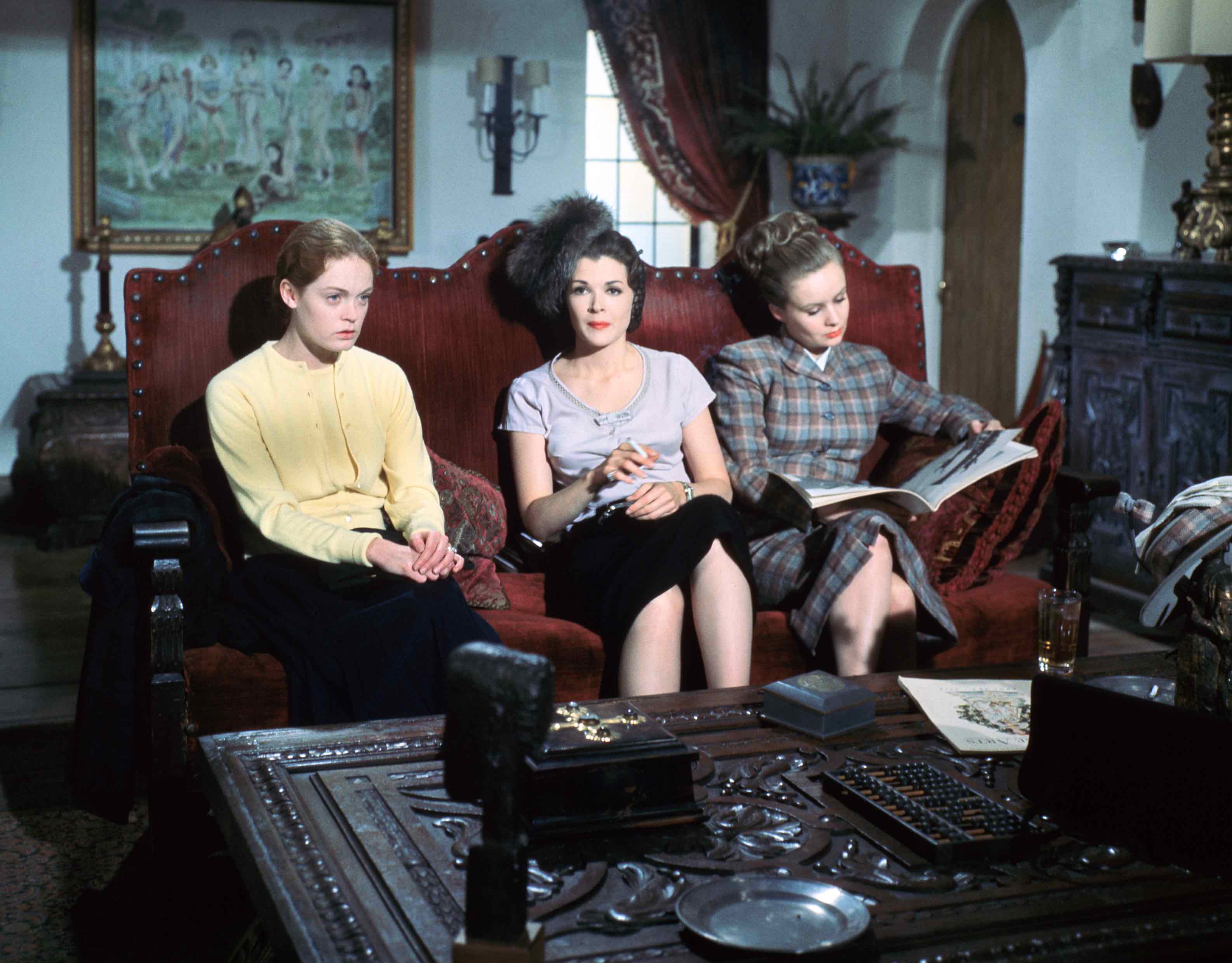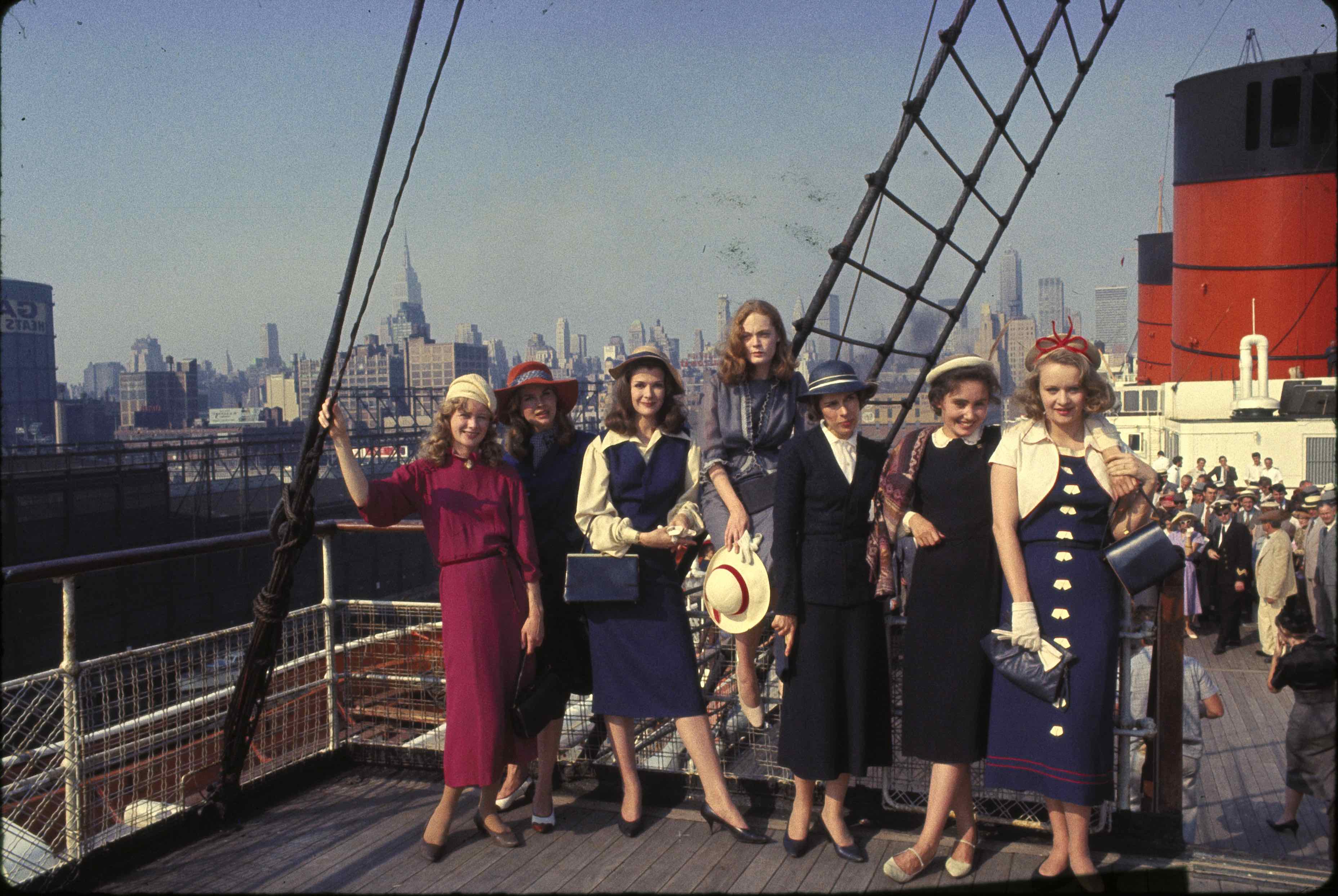 Melissa Anderson
Melissa Anderson
The graduates: reappraising Sidney Lumet’s adaptation of
Mary McCarthy’s classic novel.

The cast of The Group, by Sidney Lumet. Image courtesy Kino Lorber.
The Group, directed by Sidney Lumet, available on Blu-ray from
Kino Lorber February 12, 2019
• • •
The prose of Mary McCarthy (1912–89), whether fiction, essays, or criticism, dazzles with pinpoint satire and piety-puncturing. Cast a Cold Eye (1950), the title of one of her early novels, easily doubles as her lifelong mandate. The introduction to Sights and Spectacles, 1937–1956, a collection of McCarthy’s theater reviews, most of which first appeared in Partisan Review, includes this fabulously venomous assessment: “People who go to the theatre today are divided into two classes—those who know how bad it is and those who have no inkling.”
She spared no one from her mordant scrutiny, least of all herself and her circle. By far her best-selling book, The Group (1963) epitomizes McCarthy’s talents for mining—better yet, fracking—her autobiography to create a pungent, precisely detailed portrait of her milieu. Tracing the postgraduate lives of eight women from the Vassar class of 1933—the same year McCarthy received her BA from that Seven Sisters institution—the book functions as both a lampoon and a novel of ideas. The Group recounts upper-middle-class folly; political divisions among the left; and the binds and blind spots of McCarthy’s Greatest Generation heroines, doomed to repeat their parents’ patterns, no matter how much they abjure them: “The worst fate, they utterly agreed, would be to become like Mother and Dad, stuffy and frightened. Not one of them, if she could help it, was going to marry a broker or a banker or a coldfish corporation lawyer. . . . They would rather be wildly poor and live on salmon wiggle than be forced to marry one of those dull purplish young men of their own set.” Densely plotted and populated, the book never falters in tone or temperature. Served from a constant low simmer, McCarthy’s witty, caustic observations still singe.
But in Sidney Lumet’s 1966 adaptation of The Group, the heat—and the volume—is turned way up. Several members of the central octet deliver their lines as if in the throes of delirium. The clamor repels and fascinates me equally. Lumet’s febrile movie, which was scripted by Sidney Buchman, has barely been in rotation on the repertory-cinema circuit; in New York, I can recall only one screening from the past decade, when Hilton Als presented The Group in 2009 as part of the ongoing “Queer|Art|Film” series. The near absence has surprised me. The Group, Lumet’s tenth feature, may seem a curio even in the long, wide-ranging career of the director, who died in 2011 and is usually remembered for his work with a florid Al Pacino in the Fun City diptych Serpico (1973) and Dog Day Afternoon (1975). But Lumet’s overwrought Vassar alumnae seem to anticipate his most outsize and best-known female protagonist: Faye Dunaway’s frenzied, calculating Diana Christensen in Network (1976).

Candice Bergen as Lakey in The Group. Image courtesy Kino Lorber.
Adding to the allure of this strange artifact, now available on Blu-ray, is the cast. The Group marked the screen debut of Candice Bergen, playing the sapphic, Europhilic beauty Lakey (more on her later). It was the second film of Jessica Walter, here as Libby, a catty, nattering publishing-house aspirant, who shares some of the same malice and self-regard exhibited by Lucille Bluth, the dipso, manipulative matriarch the actress portrays on Arrested Development.
Other performers, far more obscure (and/or long since retired or dead), intrigue, if only to ultimately exhaust, with their maximalist, unmodulated acting, particularly Joanna Pettet. She plays Kay, the character who seems to have the most overlap with McCarthy’s own history. Kay, like her creator, was wed a week after college graduation to an actor and would-be playwright, called Harald in the film (Larry Hagman)—and Harold in real life. And, in an episode likely sourced from McCarthy’s second, fractious marriage, to the prodigious writer and critic Edmund Wilson, Kay is committed to a psych ward by the boozing, philandering, failing Harald. In McCarthy’s book, that scene is chilling but rendered dispassionately; in Lumet’s film, Pettet wildly palpates the walls of the hospital room, as if trapped in a Tennessee Williams tryout. (Considering how much McCarthy hated Williams’s work—Sights and Spectacles contains her eminent evisceration of A Streetcar Named Desire—the histrionic segment registers all the more jarringly.)

Elizabeth Hartman as Priss, Jessica Walter as Libby, and Mary-Robin Redd as Pokey in The Group. Image courtesy Kino Lorber.
During these discordant moments—which also include the high-pitched giggle Walter appends to nearly every one of Libby’s pronouncements and the distracting, orotund elocution of Joan Hackett as Dottie, tragically in love with the debauchee who has deflowered and forgotten her—I recall, and agree with, the appraisal of Elizabeth Bishop, McCarthy’s friend since their Vassar days (the poet was class of ’34). In a 1967 letter from Rio de Janeiro to Robert Lowell, Bishop writes: “A rainy Saturday afternoon with nothing to do we went to the local cinema to see O GRUPO—my it is dreadful; one of the worst films I’ve ever seen. Surely Mary had nothing at all to do with it . . .” (Mary didn’t.)
And yet much of the din in the movie, which runs just over two and a half hours, results from an admirable, maybe foolish, act of fealty: to replicate most of the novel’s abundant storylines. Nearly every incident, whether major (save for a detailed sex scene early in the novel, coyly handled in the film by a cut to the morning after) or minor, is recapitulated. Some even take place in the actual New York locations where they occur in the book, such as Dottie’s pivotal wait, for a suitor who never shows, on a Washington Square Park bench. While the movie couldn’t hope to reproduce McCarthy’s disquisitions on epoch-defining events, The Group is likely the only film of 1966 to feature characters uttering “Loyalist Spain,” “Moscow Trials,” and “Trotsky.”

The cast of The Group. Image courtesy Kino Lorber.
There’s something else in Lumet’s movie that’s found in few others from that year, that decade, the past half century: a glamorous, unrepentant lesbian supremacist. As with the novel, Lakey, who departs for the Continent shortly after graduation and returns to New York after the outbreak of World War II, is absent for most of film. To the shock of her schoolmates, who are meeting Lakey’s boat, she comes back not just with steamer trunks but with a lover: an older, tweedy-butch baroness. “It occurred to them all that Lakey, who had always been frightening and superior, would now look down on them for not being Lesbians,” McCarthy writes. But Lakey’s most reproachful glare is reserved for—and demolishes—Harald, The Group’s most villainous man. Bergen is unsteady in the part, but she excels in carrying out her character’s most crucial action: casting a cold eye.
Melissa Anderson is the film editor of 4Columns.